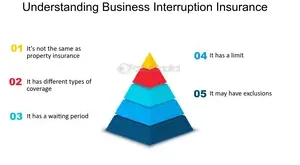Key Considerations for Cyber Liability Insurance: Protecting Your Business in the Digital Age
In today’s digital landscape, cyber threats pose significant risks to businesses of all sizes. Cyber liability insurance is designed to protect businesses from the financial losses and liabilities associated with data breaches, cyberattacks, and other cyber incidents. This guide explores the importance of cyber liability insurance, what it covers, and essential considerations for selecting the right policy to safeguard your business against cyber risks.
Importance of Cyber Liability Insurance
Financial Protection Against Cyber Incidents
Cyber liability insurance provides financial protection for businesses in the event of a cyber incident, such as a data breach or cyberattack. It covers expenses related to data recovery, investigation costs, legal fees, notification of affected individuals, and regulatory fines or penalties. This insurance helps mitigate the financial impact of a cyber incident, which can be substantial and damaging to your business’s reputation.
Coverage for Third-Party Claims
Cyber liability insurance includes coverage for third-party claims brought against your business due to a cyber incident. This includes lawsuits alleging negligence in data protection, failure to prevent a data breach, or unauthorized access to sensitive information. The insurance covers legal defense costs, settlements, and judgments, protecting your business from liability claims.
Protection for First-Party Losses
In addition to third-party claims, cyber liability insurance also covers first-party losses incurred by your business due to a cyber incident. This includes costs for business interruption, income loss, data restoration, and expenses related to crisis management and public relations efforts. The insurance helps your business recover from the operational and financial impacts of a cyber incident.
Compliance with Regulatory Requirements
Cyber liability insurance helps businesses comply with regulatory requirements related to data protection and privacy. In the event of a data breach involving personal or sensitive information, certain regulations may require businesses to notify affected individuals and regulatory authorities. Cyber liability insurance covers the costs associated with compliance, including notification expenses and fines or penalties imposed by regulatory bodies.
What Cyber Liability Insurance Covers
Data Breach Response
Cyber liability insurance covers expenses related to responding to a data breach, including forensic investigations to determine the cause and extent of the breach, notifying affected individuals, providing credit monitoring services, and establishing a communication strategy to manage the incident’s impact on your business’s reputation.
Legal Expenses
Cyber liability insurance covers legal expenses incurred from lawsuits and regulatory investigations resulting from a cyber incident. This includes legal defense costs, settlements, and judgments arising from allegations of negligence, data privacy violations, or failure to protect sensitive information.
Business Interruption
Cyber liability insurance compensates for income loss and additional expenses incurred if your business operations are interrupted or suspended due to a cyber incident. This coverage helps your business maintain financial stability and continuity during the recovery period.
Cyber Extortion
Some cyber liability insurance policies cover expenses related to cyber extortion threats, such as ransomware attacks. This includes payments for ransom demands, expenses for negotiating with cybercriminals, and costs associated with restoring or replacing encrypted data and systems.
Choosing the Right Cyber Liability Insurance Policy
Assess Your Cyber Risks
Evaluate your business’s exposure to cyber risks, including the types of sensitive information you collect and store, the cybersecurity measures in place, and the likelihood of a cyber incident occurring. Assess the potential financial impact of a data breach or cyberattack on your business operations.
Understand Coverage Options
Review the coverage options and policy terms offered by different cyber liability insurance providers. Consider factors such as coverage limits, deductibles, exclusions, and specific events or perils covered. Choose a policy that aligns with your business’s needs and risk profile.
Evaluate Additional Coverage Needs
Consider adding endorsements or riders to your cyber liability insurance policy to address specific risks or enhance coverage. This may include coverage for social engineering fraud, business email compromise, reputational harm, or regulatory fines and penalties related to data breaches.
Compare Policies and Insurers
Research multiple insurance providers specializing in cyber liability insurance and compare their policies. Compare coverage options, premiums, deductible amounts, and the insurer’s reputation for handling claims efficiently. Choose an insurer with experience in cyber risk management and a strong financial rating.
Review Policy Limits and Exclusions
Carefully review the policy limits and exclusions of cyber liability insurance policies to ensure they meet your business’s needs. Understand any limitations on coverage for certain types of cyber incidents, such as exclusions for cyberattacks originating from certain countries or involving specific types of malware.
Common Misconceptions about Cyber Liability Insurance
Myth 1: General Liability Insurance Covers Cyber Risks
General liability insurance typically does not cover losses or liabilities arising from cyber incidents, such as data breaches or cyberattacks. Cyber liability insurance is a specialized policy designed specifically to address these risks and provide comprehensive coverage for cyber-related exposures.
Myth 2: Only Large Businesses Need Cyber Liability Insurance
Cyber liability insurance is valuable for businesses of all sizes, including small and medium-sized enterprises (SMEs). Small businesses are increasingly targeted by cybercriminals due to their perceived vulnerability and lack of robust cybersecurity measures. Cyber liability insurance helps protect SMEs from financial losses and liabilities associated with cyber incidents.
Myth 3: Cyber Liability Insurance is Expensive
The cost of cyber liability insurance varies based on factors such as the size of your business, industry risk factors, coverage limits, and deductible amounts. Compared to the financial consequences of a data breach or cyberattack, cyber liability insurance is often considered a cost-effective investment in protecting your business’s financial stability and reputation.
Conclusion
Cyber liability insurance is a critical risk management tool for businesses facing the growing threat of cybercrime and data breaches. By understanding the coverage options available, assessing your business’s cyber risks, and selecting the right policy, you can safeguard your business’s financial stability, reputation, and operations. Regularly reviewing and updating your cyber liability insurance coverage ensures it remains effective against evolving cyber threats, providing peace of mind and resilience in an increasingly digital business environment.
 kisskh kisskh | Asian Dramas & Movies
kisskh kisskh | Asian Dramas & Movies









